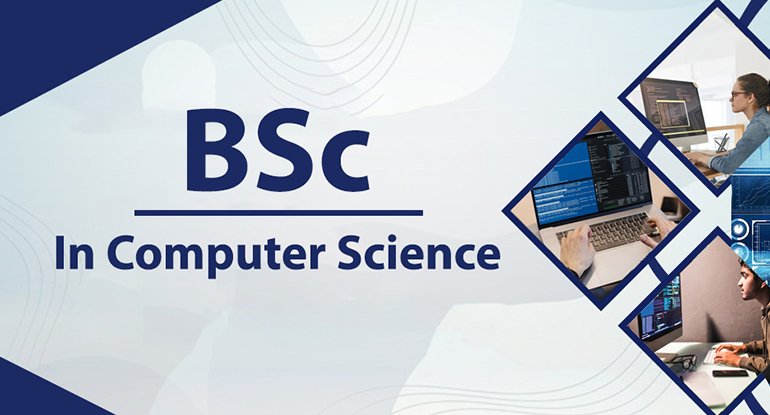
The undergraduate programme in Computer Science was started in 2010. The vision of the Department is "To provide a wholesome educational environment, a platform for the students to reinvent themselves and launch into the technological and scientific arena together with human values". The field of Computer Science and Computer Applications is an extremely demanding one because of the continuous and rapid development of new technologies and applications. The curriculum offered to the students is framed in consultation with experts from academia and industry, and is responsible for the successful placement record of the students. The Department makes every effort to update its curriculum in order to enhance competence and employability. Project work is a part of the curriculum both at the undergraduate and at the postgraduate level. Seminars, Workshops, Exhibition are organised for students to augment the knowledge gained from the curriculum.
Typically, BSc Computer Science is a three-year program.
C, C++, Java, Python: Fundamentals of programming languages.
HTML, CSS, JavaScript, and related technologies.
Arrays, linked lists, trees, graphs, etc.
Sorting, searching, dynamic programming, etc.
Understanding the structure and organization of computer systems.
Designing and managing databases using SQL.
Principles of operating systems.
Software development life cycle, project management, and methodologies.
Fundamentals of computer networks.
Basic concepts and applications.
Principles of computer graphics and visualization.
Basics of cybersecurity and data protection.
Some programs include internships or industrial training to provide real-world experience.
Designing, coding, testing, and maintaining software applications.
Working on both front-end and back-end development.
Building and maintaining websites and web applications.
Designing user interfaces and experiences.
Managing and maintaining databases.
Managing computer systems and networks.
Designing and managing computer networks.
Protecting computer systems and networks from security breaches.
Developing machine learning models.
Working on artificial intelligence applications.
Analyzing and interpreting complex data sets.
Designing and developing video games.
Creating applications for mobile devices.
Ensuring the quality of software through testing.
Overseeing software development projects.
Providing advice on technology solutions for businesses.
Starting and running a technology-related business.